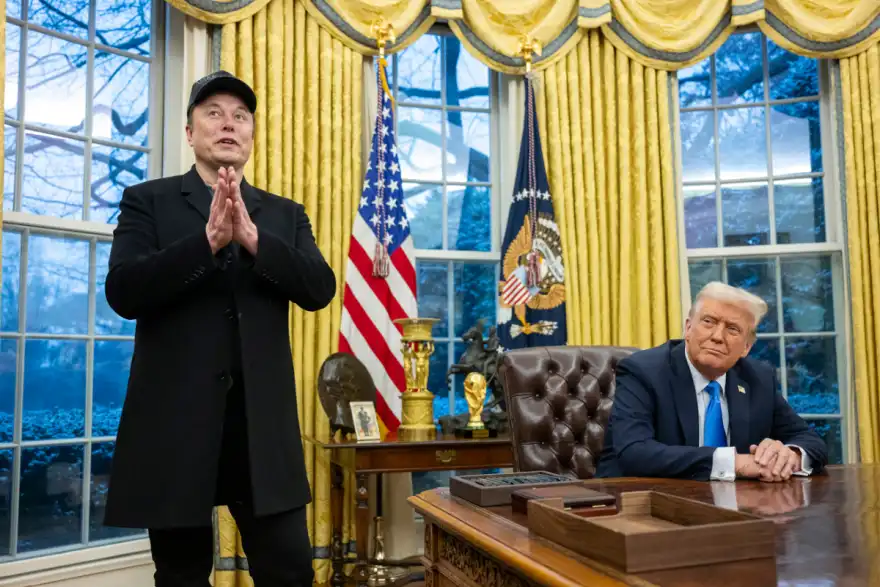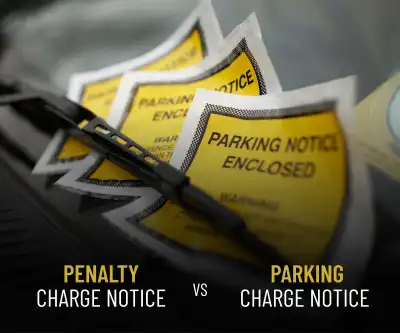
Elon Musk is scaling back his involvement in the U.S. government so he can give more attention to Tesla, after the EV giant reported a jaw-dropping 71% drop in profits.
Since January, Musk has been heading up the Department for Government Efficiency (yep, it’s actually called Doge) after Donald Trump returned to the White House. But now, Musk says he'll be cutting his time there down to just one or two days a week to focus more on fixing things at Tesla.
He’s still planning to stick around for the “critical work” at Doge, as long as Trump wants him involved and it remains useful, but clearly, Tesla’s meltdown is calling for more of his attention.
What’s Going On With Tesla?
Tesla’s had a rough start to 2025. Revenue is down 9% in Q1, profits have tanked by 71%, and shares have dropped 37% so far this year (as of April 22). But when Musk announced he’d be focusing more on the company, the stock actually jumped 5%.
Investors have been calling him out for being too distracted by his political side quests. Protests have even broken out over his involvement in Doge – a controversial federal task force aimed at slashing government jobs.
Technically, Musk is only allowed to work 130 days per year as a temporary government employee. That runs out on May 30, so we might not see a full exit immediately, but his role is definitely being dialled back. Trump has said he wants to keep Musk “as long as I could keep him.”
Wait, What’s Trump Doing With Tesla?
On March 10, after Tesla shares took a major hit, Trump tried to show his support by saying he was buying a new Tesla to back Musk. The next day, the White House lawn was turned into a full-on Tesla showroom. Trump gushed about the Cybertruck and eventually picked out a red Model S.
But public support from Trump hasn’t stopped the bleeding. Tesla stock dropped 15% on March 10 — the worst single-day dip since 2020 — following criticism of Musk’s ties to far-right figures like Tommy Robinson in the UK and Germany’s AfD party.
Is Tesla Falling Apart Globally?
Not quite falling apart — but the cracks are showing. Tesla’s stock is down 30% this year, making it one of the worst performers on the S&P 500. And it’s not just Musk’s drama causing problems. Tesla’s struggling with:
- Heavier competition (especially from Chinese EVs like BYD)
- Production and pricing challenges
- Global economic pressures
Europe’s been hit hardest. In Germany, Tesla sales fell a massive 76% in February. Meanwhile, total EV sales in the country are actually up 30.8% — so it’s not the market, it’s Tesla. And it’s not just Germany:
- Netherlands: -24%
- Sweden: -42%
- Norway & Denmark: -48%
- France: -45%
- Italy: -55%
- Portugal: -53%
- Spain: -10%
Australia's even worse — Tesla sales there dropped 72% in February. Some owners are reportedly ditching their cars or slapping anti-Tesla stickers on them.
A big reason? Musk’s political stances aren’t sitting well with customers who were drawn to Tesla for its eco-friendly image.
What About China and the U.S.?
In China, things are getting tight. Tesla’s February shipments fell 49% year-on-year, mostly due to BYD stealing market share. And let’s not forget: Musk himself tweeted "Tesla stock price is too high imo” back in 2020 — and that might’ve aged a little too well.
Tesla’s stock valuation has always been super high because people expected huge things: budget EVs, robotaxis, and world domination. But lately, the fundamentals are slipping. In January, Tesla said its Q4 2024 operating profits were down 23%. Overall car deliveries for 2024 were also lower than 2023 — a first for the brand.
Add in Trump’s tariffs on China, and Tesla’s supply chain could get even messier. While Musk claims Tesla is pretty resilient thanks to local production in the U.S., Europe, and China, he admits tariffs could still sting — especially with already tight margins.
Any Good News?
Actually, yes. Tesla’s still doing well in a few places:
- UK: Sales were up 21% in February (4,000 units sold).
- Ireland: Registrations of the Tesla Model 3 jumped 42% in the first three months of the year.
So while Tesla’s brand may be taking hits globally, there are signs of life — especially in markets where Musk’s politics are less of a hot topic.
Tesla’s facing some serious challenges — falling sales, increased competition, political backlash — but it's not all over. Growth in the UK and Ireland shows there's still demand if the company can reconnect with its core audience. Musk stepping away from politics (a bit, at least) might be the first step toward turning things around.
Whether that’s enough to pull Tesla out of its current slump… time will tell.




